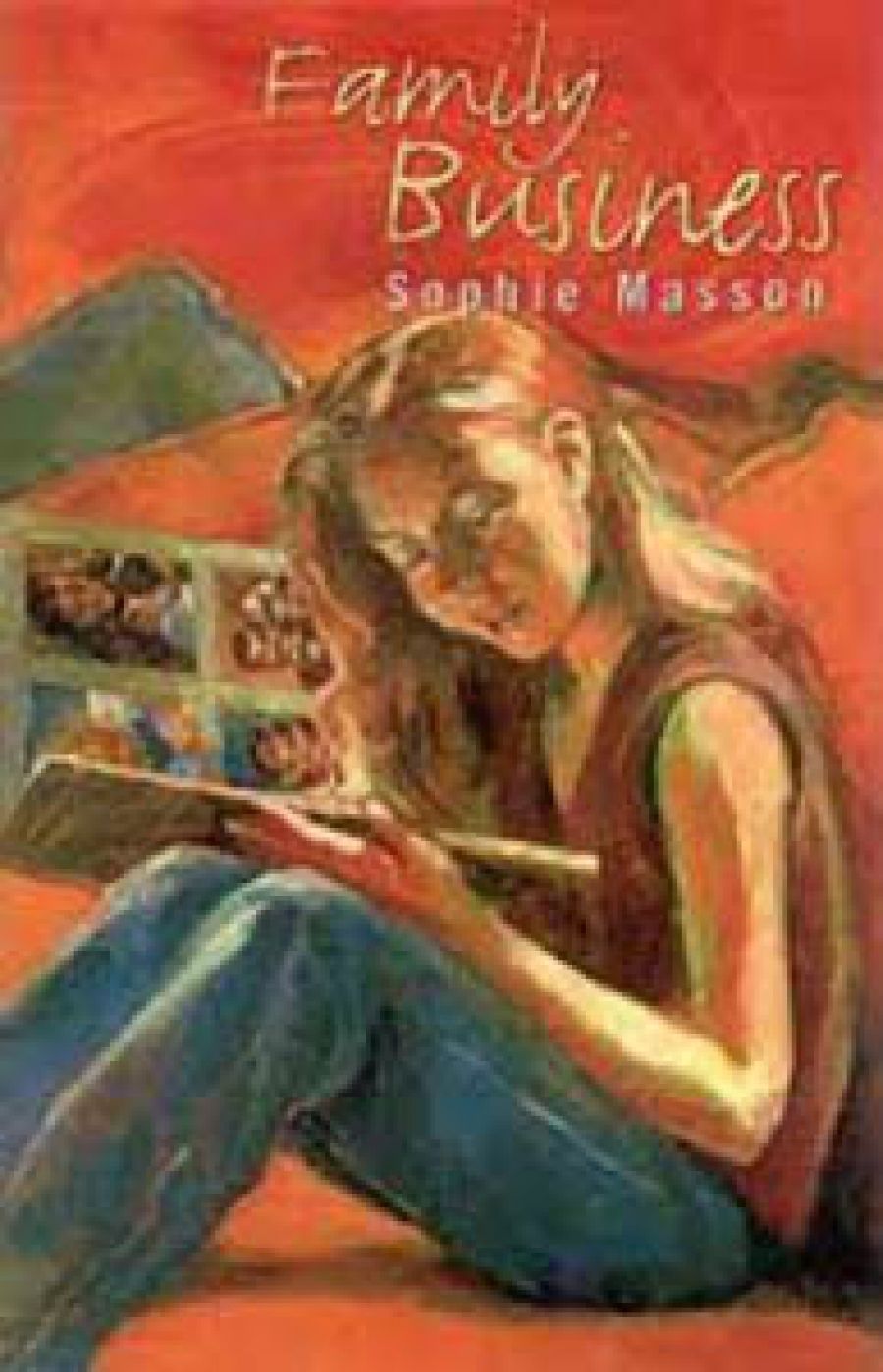
- Free Article: No
- Contents Category: Children's and Young Adult Fiction
- Review Article: Yes
- Online Only: No
- Custom Highlight Text:
When she sat down in that Edinburgh café almost three years ago to write Harry Potter and the Philosopher’s Stone, J.K. Rowling apparently determined that it would take a further six books to tell the complete story of her pubescent wizard. Millions of entranced and thoroughly hooked readers around the world are now breathlessly awaiting volume four. The books are immensely readable with a strong narrative drive, and Rowling cleverly leaves major plot points unanswered; one has to get the next in the series or die of curiosity. The same technique has served John Marsden well. Pity the poor parent who back in 1993 all unknowingly bought Tomorrow, When the War Began and then saw a further six titles progressively hit the bookshops, all in hardback first release, and all extending the saga. Many readers, including this one, wish he had stopped at number three but the temptation to continue must have been huge.
- Book 1 Title: Family Business
- Book 1 Biblio: Hodder Headline, $10.95 pb, 132 pp
- Book 2 Title: The Rented House
- Book 2 Biblio: Random House, $12.95 pb, 138 pp
- Book 2 Cover Small (400 x 600):

- Book 2 Cover (800 x 1200):

- Book 2 Cover Path (no longer required): images/ABR_Digitising_2021/Archives_and_Online_Exclusives/rented house cummings.jpg
But extended plots and cliffhangers are not the only ways of hooking loyal readers. Take, for instance, Sophie Masson’s series about the French-Australian Seyrac family, which began some seven years ago with The Opera Club. Now we have the fifth, Family Business, and the title is an encapsulation of not only the book’s focus but the subject matter of the entire series.
Neither Maman nor Papa Seyrac nor any of their five children, including the ten-year-old protagonist Florence, lead the kind of existence which makes for exciting and dramatic series fiction. Instead, life is a series of small adventures and discoveries, of setbacks and triumphs, of work and school, of holidays and family outings. Florence recognises this very clearly when she decides to enter a creative writing competition on the theme of family. While her best friend Sally Lim writes a diary about her expected new baby brother or sister, what has poor Florence to write about?
Only life, going on day after day. There were good moments and bad ones, funny ones and boring ones, but there was nothing extraordinary, was there? You had to have high drama, excitement, thrills for that, didn’t you?
It is, of course, ‘life going on day after day’ that Masson, who comes from a similar background, explores. Sally’s pregnant mother is hospitalised, Papa embarrasses Florence by picking mushrooms and dandelions in the local park, Uncle Serge’s new restaurant comes under critical review, siblings and cousins intermingle and are alternatively loved and resented, babies are born, and Florence decides what is most important in her life.
Along the way Masson gently introduces the kinds of issues which invariably occur in all such families: sibling rivalry, individuality, cultural identity, the need for tolerance, and the obligations as well as the pleasures of friendship and family life. The narrative is warm and engaging without being particularly compelling, but lacks the quirkiness, humour and strong originality which Ursula Dubosarsky brings to similar material. Like Dubosarsky, however, Masson writes accessible but challenging and literate prose and realistic dialogue without resorting to slang or contemporary ‘kidspeak’.
The readability of Family Business doesn’t depend on prior knowledge: new readers can start here. But for those who have followed the fortunes of Florence and the Seyracs, a large part of the enjoyment will lie in reacquainting themselves with familiar characters.
Despite the cover photo which depicts much older characters, The Rented House is written for a similar 8 + readership but pitched more towards boys. According to an inside cover note, it is the first book in a new series by Phil Cummings. I’m unsure whether this means a series of individual titles pitched at young readers or a series featuring the five friends from Ridley Street. Whatever the case, I hope Random House will devote as much care and attention to the contents as they obviously give to the covers. Or does one have to be a pedant like me to deplore the spelling mistakes, repetitions, and irritations of punctuation and expression, not to mention the odd blank pages, which mar the text of The Rented House? The press release even gets the author’s name wrong.
The story has a simple linear plot with one strong narrative hook: who is the stranger with green hair and what is he doing at night inside the rented house at the bottom of Ridley Street? Why does he sit in a chair on top of his VW, scanning the night sky? For many young readers, this will be enough to keep them turning the pages, especially when the mysterious goings-on include startling flashes of light, strange silhouettes, bird calls, and a bean-eating mutt called Harley. Thankfully, Cummings has resisted the temptation to attribute it all to alien invasion and the dénouement is suitably imaginative.


Comments powered by CComment